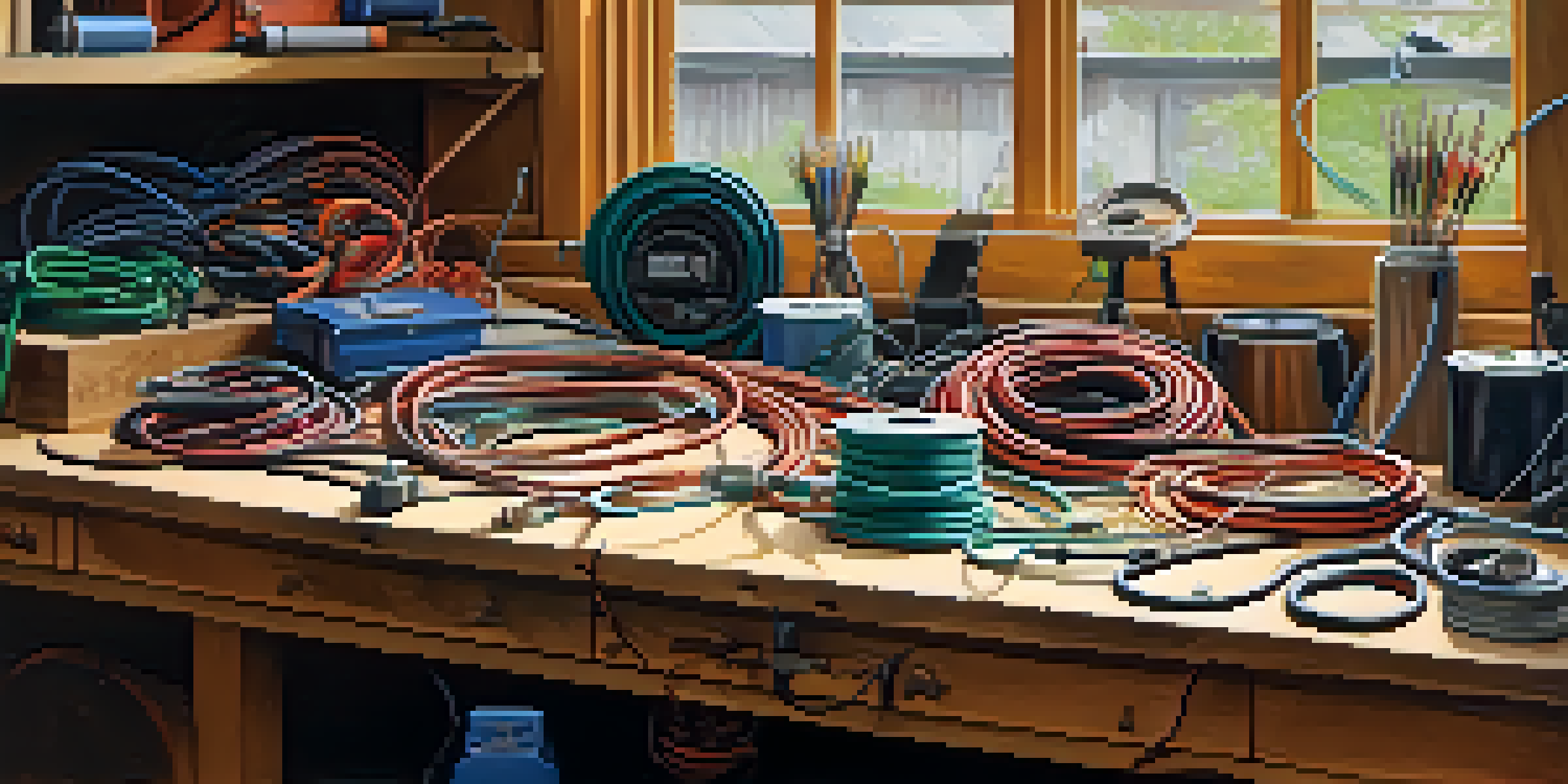How to Safely Use Extension Cords Around the Home

Understanding the Basics of Extension Cords
Extension cords are handy tools that allow you to power devices from a distance. They come in various lengths and styles, making them versatile for different needs. However, understanding their limitations is crucial to ensure safety while using them in your home.
Choosing the Right Extension Cord for Your Needs
Not all extension cords are created equal. When selecting one, consider the wattage of the device you plan to use and choose a cord that can handle that load. For example, heavy-duty cords are perfect for power tools, while lighter ones are suitable for indoor appliances.
Choose the Right Extension Cord
Selecting an extension cord that matches the wattage of your device is essential for safe and effective use.
Inspecting Your Extension Cords for Safety
Before using an extension cord, take a moment to inspect it for any signs of damage. Look for frayed wires, cracks in the insulation, or bent prongs. Using a damaged cord can lead to electrical hazards, so it’s always better to be safe than sorry.
Proper Usage of Extension Cords in Your Home
When using extension cords, avoid overloading them with too many devices. Each cord has a specific capacity, and exceeding it can cause overheating. Additionally, try to use them in well-ventilated areas to prevent any risk of fire.
Inspect Cords for Safety
Regularly checking extension cords for damage, like frayed wires or cracks, helps prevent electrical hazards.
Avoiding Common Mistakes with Extension Cords
One of the most common mistakes is using extension cords as permanent solutions. They are designed for temporary use, so it's best to avoid stringing them across pathways or using them in place of a permanent outlet. This not only reduces wear and tear but also minimizes tripping hazards.
Keeping Extension Cords Away from Water
Water and electricity are a dangerous combination. Always keep your extension cords away from damp areas and avoid using them outdoors in wet conditions unless they are specifically rated for outdoor use. This simple precaution can save you from potential electrical shocks.
Store Cords Properly
Neatly coiling extension cords when not in use prevents tangling and extends their lifespan.
Storing Extension Cords Safely
Proper storage of extension cords is just as important as their usage. When not in use, coil them neatly to prevent tangling and damage. Avoid wrapping them tightly around objects, which can lead to kinks and fraying over time.
When to Replace Your Extension Cords
Even the best extension cords have a lifespan. If you notice any signs of damage, such as exposed wires or burnt smells, it’s time to replace them. Investing in a new cord can prevent accidents and keep your home safe.